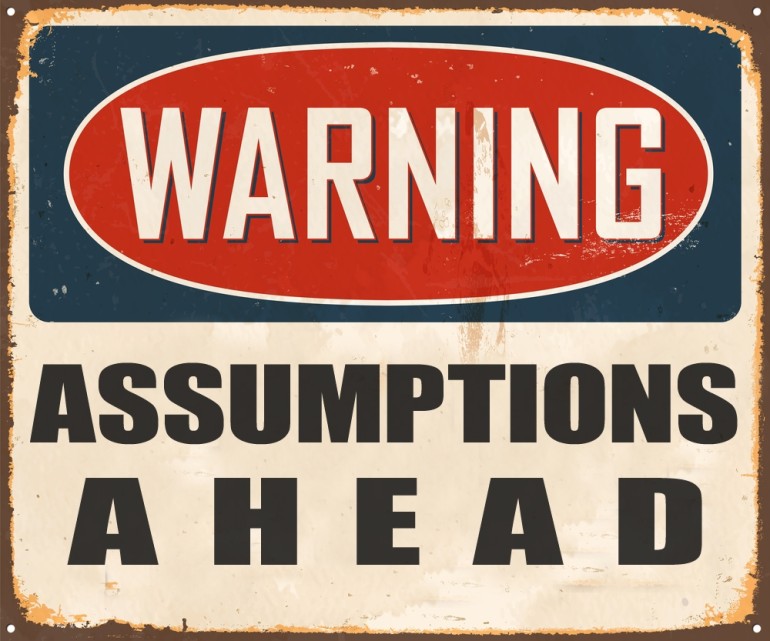A recent situation where I was the target of an assumption has compelled me to write about it.
When I was about 12 years old my father taught me when I assume I make an ass|u|me. Many of you may have seen this before or been taught it by one of the adults in your life. This lesson was one of the many leadership lessons he taught me.
What does it mean to assume in the case of my father’s lesson? My dad’s lesson taught me when I make an assumption (noun) it’s an act of arrogance, pretention, where one takes a fact or statement and thinks it’s true or probably true without knowing that it was true.
In the context of the lesson, I believe he was telling me to become aware of my perceptions, connections, relationships, and preference to the statement/situation and make sure they do not blur, shade, or misguide me from being able to see something from another’s perspective. To give the benefit of the doubt.
Interestingly, an antonym for assumption is humility.
One my core tenants both personally and professionally is to be authentic and transparent. Transparency is built into my business model and is a foundation of how I consult. When exercised and leveraged properly, both transparency and authenticity can build trust.
And, while transparency and authenticity might be exactly what is needed, when someone is dealing with a loss, works in a toxic environment, or has had their trust violated repeatedly (to mention a few), much more care around demonstrating and explaining what one is doing or not doing is absolutely required and necessary.
The good news is that we worked it out through synergistic conversations and feedback, and on the path to rebuilding our relationship.
Assumptions.
References:

